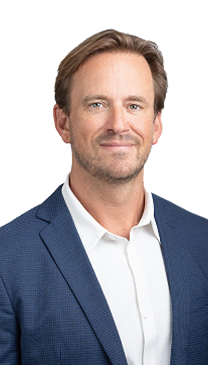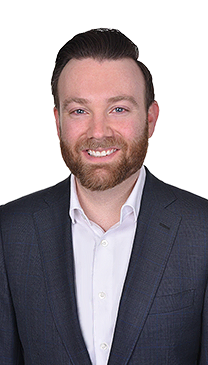Pharma Commercialization—Thought Leader Interview Series With OPEN Health
Mark Martin, Managing Director and Head of Pharma Commercialization, interviews Rob Barker, Group CEO of OPEN Health
OPEN Health has capabilities that support its clients across the entirety of the commercialization continuum. Can you discuss how that breadth of expertise is viewed by your clients and how it has differentiated you from competitors and ultimately catalyzed growth?
At OPEN Health, we have built a business with a broad range of capabilities to allow our clients to benefit from services across the product lifecycle. Our differentiation comes from this, our global reach, our ability to effectively engage with all the key stakeholders (HCPs, payors, and patients), and importantly, what our teams have in common: deep scientific and medical expertise, sharp strategic insights, nuanced market understanding, relentless focus on quality, and shared values. Our clients have complex challenges to solve. By uniting our deep scientific knowledge with our wide-ranging specialist expertise, we unlock possibilities for our clients, improving health outcomes and patient well-being in partnership.
Our broad capabilities and shared values catalyze growth in a number of ways. Firstly, we can provide our clients with integrated solutions, uniting experts from across our organization to bring fresh perspectives and innovative solutions. Secondly, our reputation drives referrals and recommendations between internal pharma teams allowing us to cross-sell our capabilities. And finally, our track record allows us to engage at a strategic level with our clients, as we can demonstrate added value and put in place the adequate engagement model, setting our clients up for success and ensuring long-term growth for our business.
You recently acquired Acsel Health, which added multidisciplinary consulting expertise to your arsenal of services for life sciences manufacturers. Can you discuss how strategic advisory fits alongside OPEN Health’s Scientific/Creative Communications and HEOR & Market Access capabilities?
Acsel has been a great acquisition, bringing OPEN Health a new, adjacent, and complementary service offering with the same science-driven, customer-focused approach as the broader group. Their expert team and long-standing client relationships significantly strengthen our ability to support the commercialization of our clients’ assets and develop compelling value narratives for payors, and ultimately, patients. The recommendations that come out of advisory projects are a strong foundation from which to introduce the wider OPEN Health offering, and Acsel’s strategic excellence drives cross-sell within the group.
We continue to see a growing demand for HEOR & Market Access capabilities across the industry. Can you discuss the importance of access, pricing, and reimbursement across the healthcare ecosystem? Are you seeing any trends in that section of the market?
I truly believe that we need to think about all the stakeholders when helping our pharma clients to successfully communicate the true value of their products. Generating and communicating evidence around the economic value of a healthcare intervention is becoming increasingly important and complex for our clients and is a key part of our role as commercialization partners to pharma. There are many ramifications to the rise of payors as stakeholders and their increased interest in data-driven evidence:
- Pharma wants to understand early what the willingness will be to pay for their products, and need the help of strategic teams as they shape their development plans.
- Payors want true evidence, and they want to make sure that they understand the true benefits for patients, driving greater interest and investment in developing and including patient-reported outcomes early on.
- Increased acceptance of and requirement for real-world evidence by regulatory authorities and payors.
- With new and innovative treatment options, and increased focus on the real-life effectiveness of treatments, the need for scientific HEOR modeling is increasing to satisfy the ask of payors and policy-makers.
OPEN Health is at the forefront of providing these forward-thinking solutions to meet the needs of clients and ensure the right access for patients, now and in the future. Our team of 300 experts can answer these complex and highly technical questions at the global level.
How are you viewing the opportunity for specialization within Cell and Gene Therapy as that subsegment continues to rapidly evolve?
As a general trend, healthcare investment is moving more into specialist areas with high unmet clinical needs, with rare disease , and cell and gene therapies, gaining increasing focus. These are areas with a particular requirement for strong and authentic partnership with the patient community, to ensure that the pharmaceutical industry is understanding, communicating, and meeting patient needs, building solutions that incorporate the patient voice, and driving health equity. This is also an area where the science and the access landscape are complex and evolving fast, requiring deep scientific knowledge, therapy area understanding, and market access expertise. These are all core strengths of OPEN Health and have helped us offer best-in-class capabilities in rare disease and for cell and gene therapies. We have supported and continue to support some of the most advanced CAR-T therapies for our key customers.
In your view, are there any other key trends driving change in pharma commercialization? Are there any important industry trends being overlooked?
One of the most exciting aspects of the healthcare industry is its constant evolution and the resulting changing needs of our clients. We are seeing the following key trends at OPEN Health, and supporting our clients to stay ahead across all these areas:
- There is a long-lasting trend in increasing Medical Affairs budgets and remits as the industry drives to maximize high-science, peer-to-peer engagement with its customer base. The Medical Affairs function is gaining greater visibility and more strategic responsibilities, now including evidence generation and value communications, digital innovation, patient/patient group collaboration, and patient communication.
- The pharmaceutical industry is very conscious that it needs to engage the patient community as partners across the lifecycle. They now have a clear intent to include the patient as a key stakeholder of their scientific and medical engagement, beyond payors and providers. We are seeing recent investment here, and the opportunity to innovate and drive positive change. From evidence generation to publications development, to healthcare professional education, and direct-to-patient engagement and support, it’s an area where we continue to build our service offering.
- Geographically, we are seeing a continued need for global alignment. Clients are expressing a desire for partners with strong presence and knowledge across both the U.S. and Europe, benefitting a global organization such as OPEN Health, which doesn’t operate in geographical silos. As we grow, we have a clear intent to globalize even more than we are today and are making organic investments and acquisitions to further develop our U.S. presence—for example, with the acquisition of the CM Group last year.
- Omnichannel communications are becoming ever more valued by our clients. OPEN Health’s expertise allows us to deliver a truly omnichannel solution, bringing engaging content to healthcare professionals in the right channels, in the right format, at the right time. We are seeing huge growth in understanding of and appetite for omnichannel solutions with our Medical Affairs clients too, which is exciting.
- We should also mention artificial intelligence. We are excited about the possibilities this will unlock in the healthcare space, supporting data collation and analysis, insight generation, and content optimization.
- Finally, we are seeing our clients’ environment, social, and governance requirements demand higher standards from their partners. This is an advantage for OPEN Health due to our strong focus in this area and the support we receive from Astorg in this space.
As a global organization with offices across North America, Europe, and Asia, can you discuss OPEN Health’s appetite for continued geographic expansion? Are you focusing on any geographies in particular?
As our clients demand global alignment, OPEN Health is well suited to serve them around the globe. As we all know, the U.S. continues to be the major market for our industry and, of course, a key focus for the growth of OPEN Health. We continue to invest in our business globally and have acquired two businesses in the U.S. over the past year. We continue to thrive in all our markets and keep a close eye on geographical industry trends.
Drug approvals/recommendations from the FDA/EMA declined in 2022 when compared to the prior year. How does the industry adapt to a lower level of drug launches, and what is your outlook on 2023 and beyond?
The decreased rate of approvals can be challenging for some across our sector, but this is temporary, and 2023 is on track to be one of the highest approval years. OPEN Health supports across the drug lifecycle with significant support pre-launch, so this temporary slowdown is not having the impact on us that it might elsewhere. As ever in our industry, we are seeing some client companies expand their spend and others keeping tighter control over their budgets this year. We are also seeing more focused spend on key assets and therapy areas from our clients and, thanks to our strong client partnerships, can ensure we are focusing our attention on the areas where investment is greatest.
You took over as Group CEO in November 2020 and have since overseen four acquisitions that bolstered capabilities across the organization. Can you discuss OPEN Health’s journey over the past few years and your strategic vision for the future?
It’s been an exciting time to lead OPEN Health. The business has always been a story of strong organic growth married with strategic acquisitions. Each of our four acquisitions has added significant value to the business and to our clients: new capabilities, new geographies, and new talent. At the same time, we have grown organically by continuing to hire and retain industry-leading talent and by focusing strategically on growth that diversifies our revenue streams across our client base. Internally, we have welcomed new expertise into our leadership teams and are building systems and approaches to ensure we can continue to grow at scale. We have come a long way but have big ambitions; I feel like we’ve only just begun. We will continue to drive to be pharma’s chosen science-driven partner focused on educating and engaging patients, providers, and payors across a drug’s lifecycle.
However, through all of this, our vision has not changed—to be the world’s most respected healthcare partner and grow strategically by building a globally focused professional services business with science at its heart.
Statements and opinions expressed herein are solely those of the author/interviewee and may not coincide with those of Houlihan Lokey. They are not intended to provide information upon which to base an investment decision and should not be construed as such.
Contacts
-
Mark Martin Managing Director Global Head of Pharma Services

-
Brandon Bleakley Director
